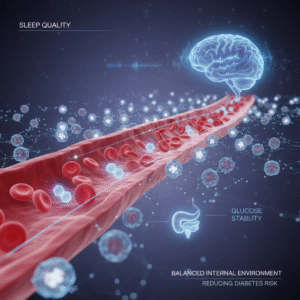Experience relief from acid reflux by treating your sleep apnea. Learn how CPAP therapy reduces reflux symptoms and gives you lasting comfort and better sleep quality—supported by research since 2016.
The Research Explained
New clinical research reveals that individuals with both sleep apnea and acid reflux saw marked improvement in digestive symptoms after consistent CPAP treatment. In fact, at the heart of this breakthrough is how CPAP—and ultimately, treating sleep apnea itself—helps strengthen esophageal function during the night.\n\nWhen breathing pauses during sleep, the increased pressure on the abdomen can force stomach acid upward. This explains why treating sleep apnea by restoring normal breathing often directly lessens acid reflux symptoms.\nCPAP therapy: How it works.\nSleep talking, restless legs, or feeling unrested upon waking? These may point to undiagnosed sleep apnea.
The Role of Lifestyle in Managing Acid Reflux
While CPAP provides a direct treatment approach, certain lifestyle tweaks complement its effects. For instance, avoiding large meals within a few hours of bedtime naturally reduces nocturnal stomach acid secretion, preventing acid reflux even in those not on CPAP. Elevating the head of your bed may also help gravity keep acid where it belongs.
Consult Us About Your Sleep Health
Noticing nighttime heartburn and feeling tired despite getting enough hours? It might help to take a sleep questionnaire or speak with a sleep specialist, especially if snoring is a concern for you or someone else. Treating sleep apnea not only counters acid reflux but improves focus, emotional well-being, and overall sleep quality. It’s time for an honest look at your sleep patterns to reclaim restful nights without discomfort.
Conclusion
Treating sleep apnea isn’t just about stopping snoring or avoiding drowsy driving risks. It’s about reclaiming your health—improving not only your energy levels but your digestive comfort too. The research is clear: managing sleep apnea can significantly reduce acid reflux, leading to restful, comfortable nights. If you suspect you may have sleep apnea symptoms, consider seeking a professional evaluation today to find relief from both nighttime interruptions.
Frequently Asked Questions
Can treating sleep apnea help reduce acid reflux symptoms?
Yes, treating obstructive sleep apnea with CPAP therapy has been shown to significantly improve acid reflux. A study found that participants who used CPAP regularly saw fewer nighttime heartburn incidents.
Does sleep apnea cause acid reflux?
Yes, sleep apnea can lead to increased abdominal pressure during breathing interruptions, forcing stomach acid into the esophagus. Treating the underlying apnea resolves this mechanism.
Sources
- Symptoms and Causes of Sleep Apnea – Mayo Clinic: https://www.mayoclinic.org/diseases-conditions/sleep-apnea/symptoms-causes/syc-20351050
- CPAP Treatment Overview – WebMD: https://www.webmd.com/sleep-disorders/sleep-apnea-treatment-overview








